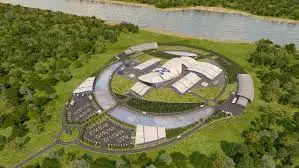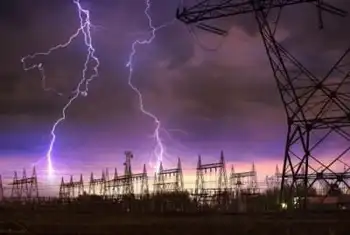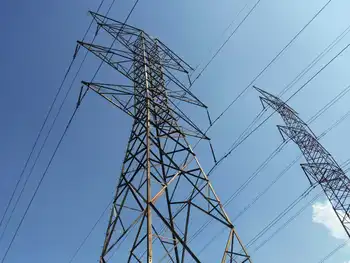Co-ops take action on climate
“Our position on climate change is to take action, and we do have a proposal for how to best deal with it,” said Gary Weins, assistant general manager of the Montana Electric Cooperatives Association, which is headquartered in Great Falls.
MECA is a not-for-profit, statewide trade association that represents 26 consumer-owned electric distribution cooperatives and three generation and transmission cooperatives. Those co-ops serve more than 250,000 people across Montana and the Dakotas, Wyoming and Idaho.
“We know that this is a serious issue that our customers, who are our owners, want us to address,” Weins said during a recent interview in Missoula. “Three-quarters of all Americans believe that global warming is something we need to do something about, so we want to be out front on it.”
MECA's plan derives from one developed by the Electric Power Research Institute, an independent nonprofit organization for public interest energy and environmental research. The plan focuses on what EPRI calls the “full portfolio,” a broad-spectrum approach to cutting carbon dioxide emissions while not decimating the economy.
The portfolio, designed to cut carbon dioxide emissions to 1990 levels by 2030, is built on seven technologies, some already in place, others in need of more development:
End-use energy efficiency.
Renewable energy.
Advanced, light-water nuclear reactors.
Advanced and clean coal power plants.
Carbon dioxide capture technologies.
Plug-in hybrid electric vehicles.
Distributed energy resources, which include new ways to capture and and distribute power generated by wind and solar sources.
“What we're dealing with is a sort of perfect storm, where prices are increasing and sources of power are declining, and now we've thrown global warming on top,” Weins said. “It's a situation that demands action, and it won't be easy, but we are excited about playing a role.”
Implementing some of the strategies will result in some reduction in carbon dioxide emissions, but both EPRI and Weins said the reduction to 1990 levels requires the entire range of alternatives.
“If you don't use it all, the line that graphs emissions continues to move up,” Weins said. “And we have the ability to do it, the ingenuity to do it, and people want it done.”
Weins said the plan requires significant American investment in new technologies over the next three decades, but will produce a significant savings and a renewable energy future in the bargain.
“It's expensive, but we can't afford not to do it,” Weins said.
Some of the technologies needed to make the shift to carbon dioxide reduction aren't really commercially viable yet. For instance, it's true that carbon dioxide can be captured from power plants with current technologies, but the costs to do so are exorbitant, both to industry and consumers.
“Carbon capture isn't there right now, but it can be by 2020, and it's critical if we're going to cut emission levels,” Weins said. “You've got to have all the technologies on the table.”
Montana cooperatives are already looking at other technologies as they prepare for a coming cutback in power supply from the Bonneville Power Administration.
“That will result in a 5 to 10 percent reduction in supply, and there are co-ops looking at replacing some of that with wind farms,” Weins said. “They're also looking at being more efficient, with can be both quick and cheap.”
Weins said MECA believes that power suppliers have an obligation to take action on global warming.
“We're at the center of the process, bring power from suppliers to consumers,” he said. “We need to play a role in making sure that equation is designed to solve our problems rather than making them worse.”
Related News

US NRC issues final safety evaluation for NuScale SMR
WASHINGTON - US-based NuScale Power announced on 28 August that the US Nuclear Regulatory Commission (NRC) had completed Phase 6 review—the last and final phase—of the Design Certification Application (DCA) for its small modular reactor (SMR) with the issuance of the Final Safety Evaluation Report (FSER).
The FSER represents completion of the technical review and approval of the NuScale SMR design. With this final phase of NuScale’s DCA now complete, customers can proceed with plans to develop NuScale power plants with the understanding that the NRC has approved the safety aspects of the NuScale design.
“This is a significant milestone not only…





